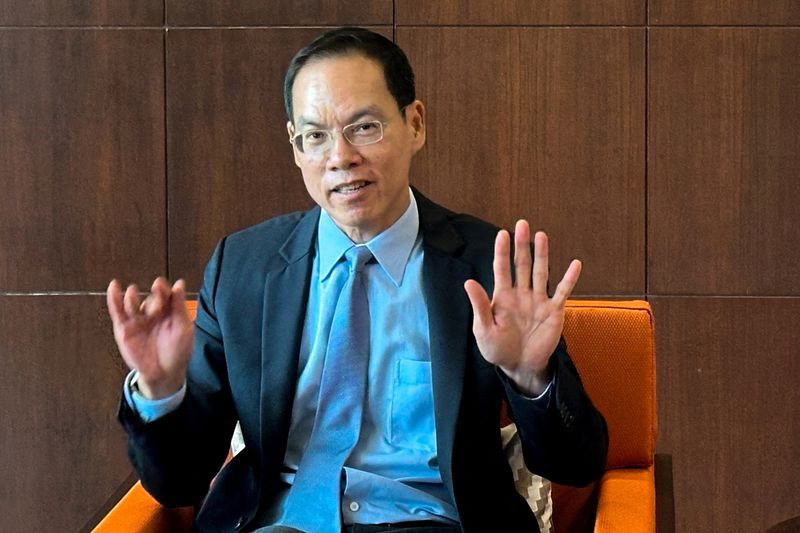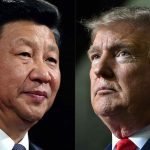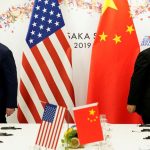Flare-up in US-China trade tensions poses a big risk to Thailand’s growth, deputy central bank governor says

By Karin Strohecker
WASHINGTON (Reuters) -The fresh flare-up in trade tensions between the United States and China is a big risk to the outlook for Thailand’s economic growth, the country’s deputy central bank governor said, adding there was little room left to lower rates further.
U.S. President Donald Trump on Friday shattered a relative calm in the trade war between the world’s top two economies by threatening 100% duties on Chinese goods – on top of rates averaging 55% – in retaliation for Beijing’s dramatically expanded export controls on rare earths.
“Of course, that’s a big downside risk,” Bank of Thailand Deputy Governor Piti Disyatat told Reuters on the sidelines of the International Monetary Fund World Bank annual meeting in Washington.
“China and the U.S. are both major export and import trading partners, and whatever happens between them, it’s not helpful for the rest – so we hope that it will not play out too aggressively.”
The central bank expects to see growth at 2.2% this year and 1.8% in 2026 – well below the potential growth rate of 2.7%.
Despite the sluggish growth, policy makers surprised markets last week by leaving the key interest rate steady rather than cutting, as the economy struggles with a strengthening baht, negative inflation and the fallout from U.S. tariffs.
Piti said room for manoeuvre was limited on rates.
“The level of policy rate at 1.5 is actually historically low,” said Piti, adding lending rates had dipped below this level only three times – during the great financial crisis, and the COVID and the SARS epidemics.
“There’s not much room left, and the things that are holding back the economy are no longer funding conditions.”
The central bank would instead rather focus on financial measures together with fiscal authorities, such as debt restructuring schemes for household and small and medium enterprises, such as loan guarantee schemes to get access to credit.
“That’s where the constraints are and we are doing that, and maybe do more of that going forward,” he said.
Recent data showing inflation being negative for a sixth straight month in September did not require a rethink of the central bank’s inflation target of 1-3%, the deputy governor said.
“It’s roughly okay,” he said, adding declines were driven by lower energy and food prices, both mostly external and supply related, with inflation expectations holding broadly steady.
Asked how the political change in Thailand had shaped policy making, Piti said the bank had fared well.
Do you want to build your own blog website similar to this one? Contact us








